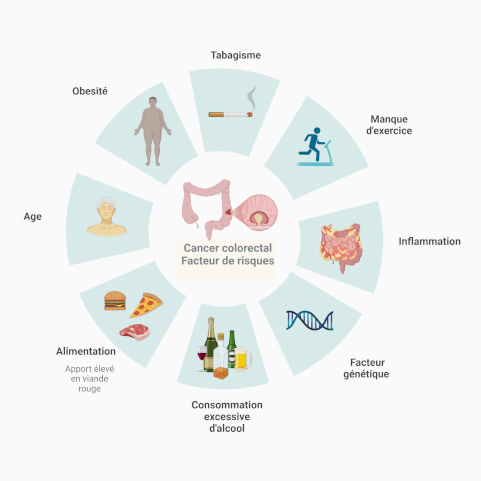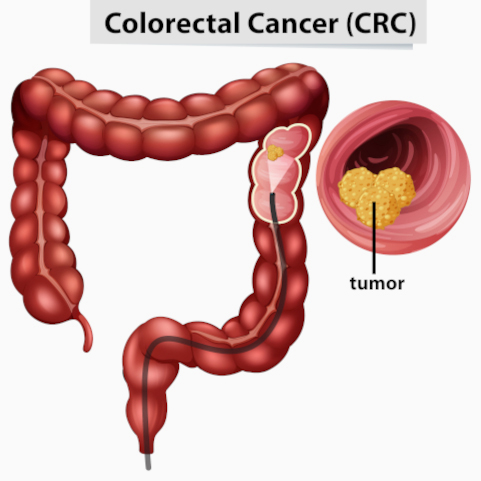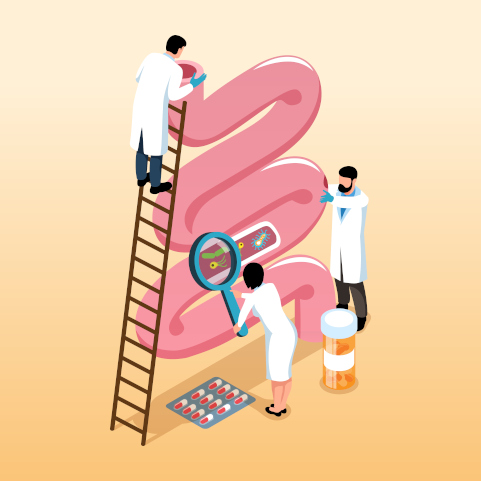Colorectal cancer
Colon cancer is one of the most common cancers affecting the large intestine (colon). It generally develops from small growths called polyps, which can become cancerous over time.

/ Risk factors
Several factors can increase the risk of developing colon cancer:
• Age: the risk increases after the age of 50
• Family history of colorectal cancer
• Inflammatory bowel diseases (Crohn’s disease, haemorrhagic rectocolitis)
• Lifestyle: diet rich in red and processed meats, excessive alcohol consumption, smoking, sedentary lifestyle, obesity, etc.

/ Symptoms
Symptoms of colon cancer can include:
• Changes in bowel habits
• Blood in the stool
• Persistent abdominal pain
• Unexplained fatigue
• Unexplained weight loss
It’s important to note that these symptoms can be associated with other, less serious conditions. However, it is vital to consult a doctor if you have any doubts.


/ Screening and diagnosis
Although the exact causes of colorectal cancer disease are still poorly understood, several risk factors have been identified:
• Age (main risk factor)
• Family history
• Certain susceptibility genes (such as APOE4)
• Cardiovascular disease
• Type 2 diabetes
• obesity
• Smoking
• Lack of physical and cognitive activity

/ Treatments
Treatment for colon cancer depends on the stage of the disease and the patient’s general condition. Treatment options may include :
• Surgery: removal of the tumour and adjacent lymph nodes
• Chemotherapy: use of drugs to destroy cancer cells
• Targeted therapies: drugs designed to specifically attack cancer cells
• Immunotherapy: stimulation of the immune system to fight cancer


/ Research and innovations
Research into colon cancer is progressing, with recent studies focusing on :
• Developing new targeted treatments and immunotherapies
• Identifying biomarkers for early diagnosis
• Improving minimally invasive surgical techniques
• Understanding the mechanisms of treatment resistance and dissemination
Patients support
Several associations offer invaluable support to colon cancer patients and their families:
- Mon Réseau Cancer Colorectal: an exchange and information platform for patients and their families
- Association François Aupetit (AFA): support for people with chronic inflammatory bowel disease, which can increase the risk of colon cancer
- Ligue contre le cancer, FRM and Fondation ARC: provide comprehensive support for patients and fund research, in particular by helping young researchers.
These associations play a crucial role in providing information, psychological support and defending patients’ rights. Colon cancer is a serious disease, but advances in research and screening efforts are constantly improving the way it is treated. Raising public awareness, early detection and support for patients are essential in the fight against this disease.

/ Colon cancer research at the IGF
At the IGF, researchers are conducting innovative research to understand the mechanisms involved in this complex pathology, identify biomarkers for early diagnosis and propose new therapeutic avenues.
Find out more about the projects of:



